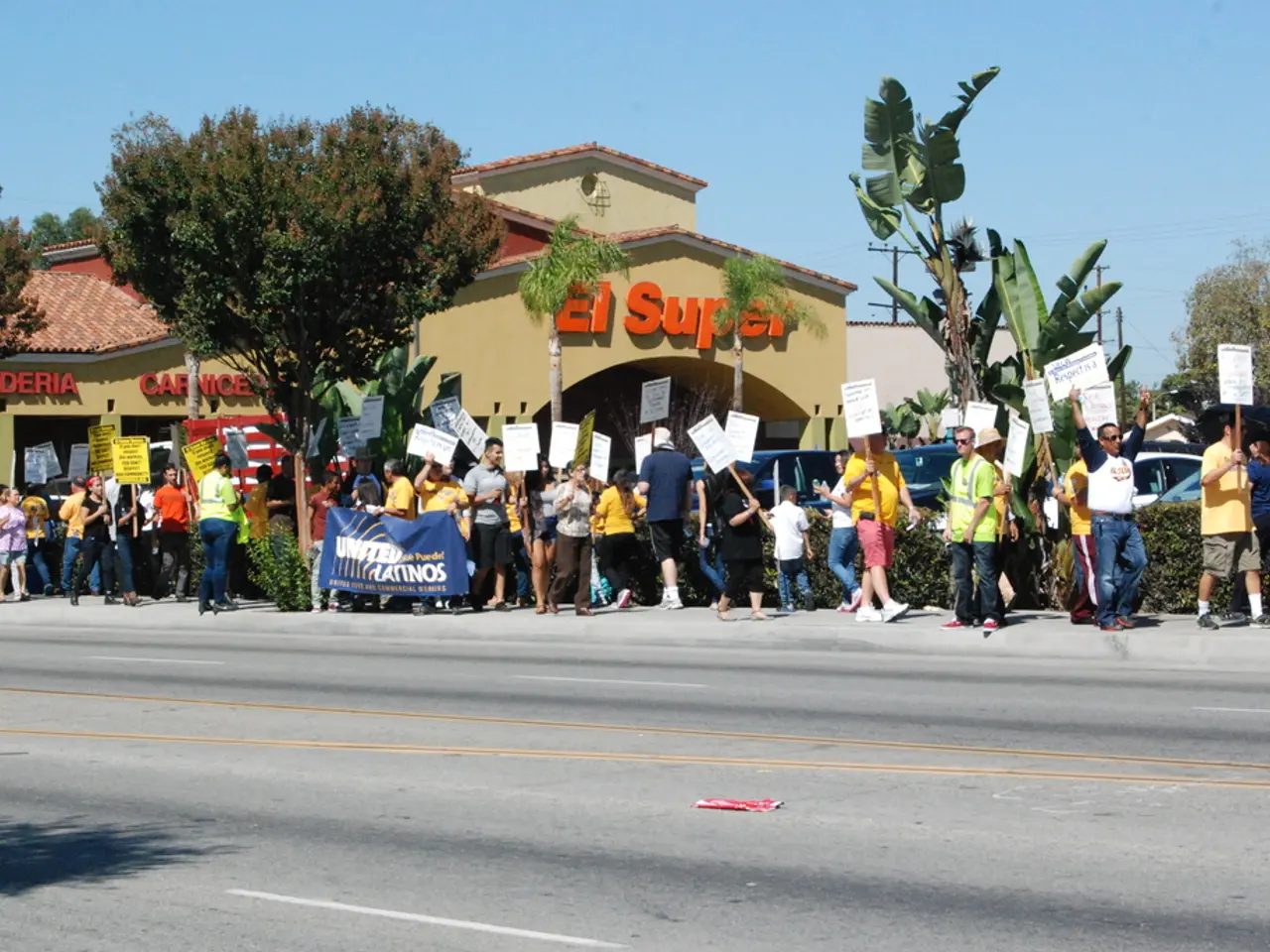Former president Trump criticizes the job numbers released by the former commissioner of the Bureau of Labor Statistics, labeling them as the "most significant errors in more than half a century."
The tenure of Erika McEntarfer, Commissioner of the U.S. Labor Department's Bureau of Labor Statistics (BLS), came to an end on August 1, 2025, following her controversial firing by President Donald Trump[1][2][3][5]. The controversy centred around allegations of inaccuracies and manipulation in job numbers under McEntarfer's leadership, which critics claimed were unfavourable to Republicans ahead of the 2024 presidential election[2][4].
During her tenure, the BLS was accused of publishing overly optimistic jobs figures that were later revised downward, undermining public trust and complicating economic policymaking. For instance, a revision down of 258,000 jobs for May and June 2024 was particularly highlighted, causing concerns about policy effects on the Federal Reserve's interest rate stance[4].
Trump accused McEntarfer of incompetence and manipulating data to discredit him and his party, claims that she vehemently denied[1]. These accusations were met with widespread criticism from economists and policymakers who viewed the BLS as a respected, nonpartisan statistical agency. McEntarfer, an economist with a PhD in economics, had been confirmed with bipartisan Senate support (86-8 vote) and praised by former BLS commissioners and experts for her qualifications and experience[2][3].
Federal employees expressed concern that her firing marked a politicization of the BLS, potentially leading to future interference in a previously neutral agency tasked with providing objective labor market data[5]. The firing occurred just hours after a weak jobs report and revisions that had distressed political leaders and market observers, making it clear that political tensions interacted with the technical challenges of economic data production.
The episode reflects broader tensions about the reliability, neutrality, and political framing of economic statistics in highly polarized electoral contexts[1][2][4][5]. Trump's post on Truth Social alleged that the "miscalculations" of BLS Commissioner Erika McEntarfer were the most significant in more than half a century. Trump continued to lash out at the BLS and threatened to fire McEntarfer after the U.S. economy added fewer jobs than expected in July and large downward revisions were made in the prior two months[1].
The U.S. Bureau of Labor Statistics reported that 74,000 jobs were added in July, well below the 110,000 estimate of economists polled by LSEG[1]. The job growth in June was also revised downward by 133,000 to just 14,000 jobs added that month[1]. The U.S. Bureau of Labor Statistics did not immediately respond to FOX Business' request for comment[1].
- The controversy surrounding Erika McEntarfer's tenure as BLS Commissioner was rooted in allegations of inaccuracies in job numbers, which raised concerns about the impact on economic policy and legislation, particularly the Federal Reserve's interest rate policy.
- Trump's accusations of manipulation of data by McEntarfer, the BLS Commissioner, served as a general news topic, sparking debates about the politicization of an agency tasked with providing objective labor market data, and questioning the reliability and neutrality of economic statistics in polarized electoral contexts.





